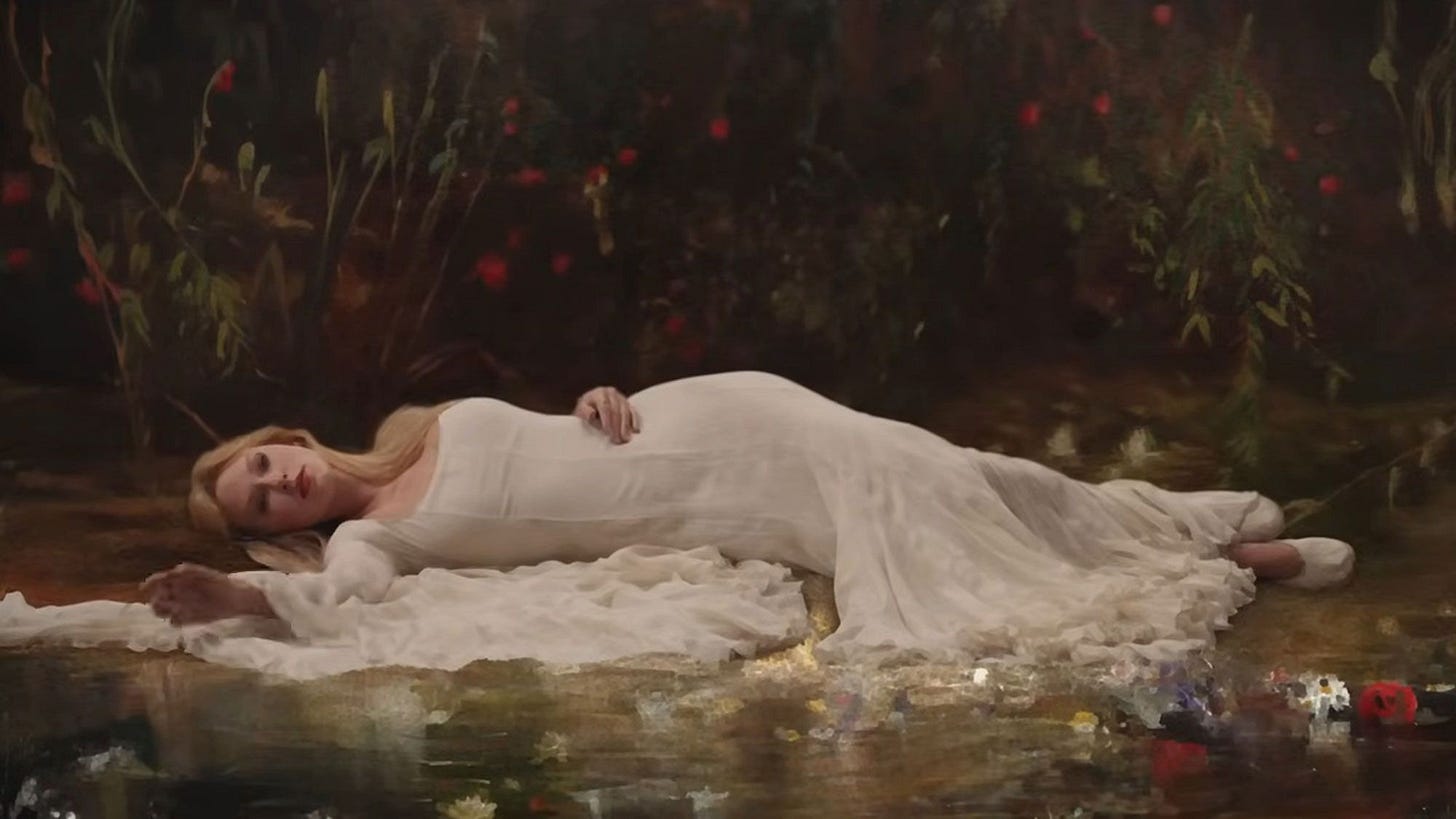Taylor Swift is not Ophelia
The bait-and-switch of modern feminists from empowered girlboss to helpless damsel
The modern girl thinks of herself as a dauntless heroine in armour when she wants to disobey men who tell her anything about her duties as a woman, but then thinks of herself as a damsel in distress, waiting helplessly in a tower, when she needs men to fulfil their duties. She embodies whatever archetype suits her needs at that moment. It is clear then that feminism, then, is not about women’s empowerment (because empowerment implies responsibility in all contexts) but rather about selfishness.
Taylor Swift is correctly referred to as a career shark of the industry because of how well she can cater to this proclivity for women to wear archetypes like clothes they can change for their comfort. She is the curly haired princess in the tower. She is the bad-ass woman in control. She is the maligned lover always the victim of men’s caprice. Many songs from a previous era were lamentations of one’s own wrong doing, of artists speaking of the sins that torment them, Back to Black by Amy Winehouse, Always on my mind by Elvis. But Taylor has never shown any such willingness to connect with her audience in a way that might inspire them to reflect on their flaws or responsibility in their suffering.
Her newest song, Fate of Ophelia, is one of the most insidious bait-and-switches she has ever done. While many “conservative” minded people praise the song for the admission of at least the idea that a man may save a woman from tragedy and despair, I take a different view. This song is a prelude to the tsunami of self-victimization we will see in the coming years as millennial women blame everyone else for their loneliness and despondency as they approach middle age. They will follow suit and switch from powerful girlboss to drowning pale-faced princess who did nothing wrong. Vice and selfishness may reward the vibrant vitality of youth, but cannot be tolerated for too long and as a generation of women begin to face the consequences for their vices, they will attempt to escape responsibility for it.
But let us begin our discussion by delving into the fate of the original Ophelia. There are some curious similarities between this Danish Princess and our sparkly modern pop star.



